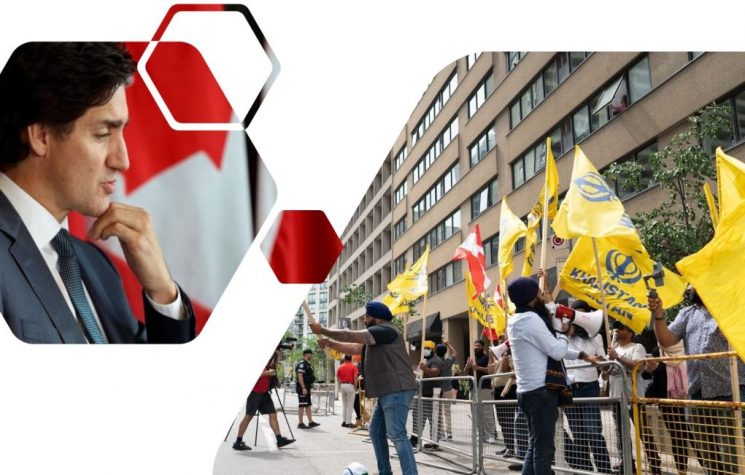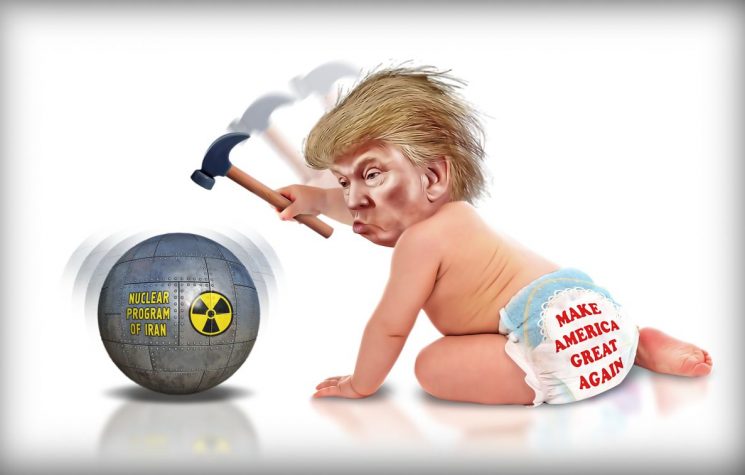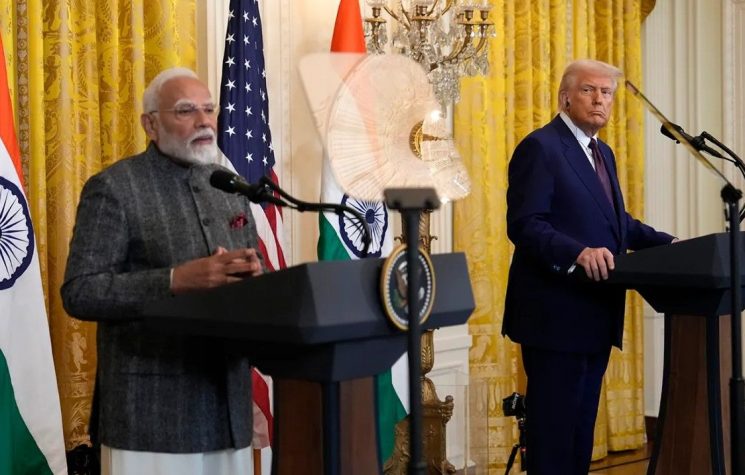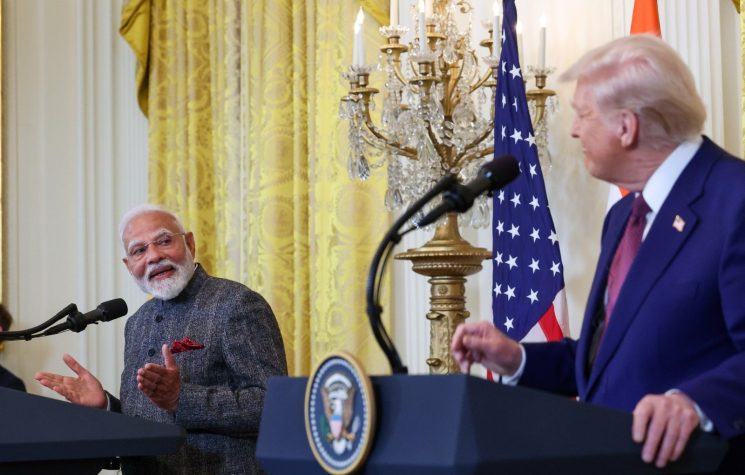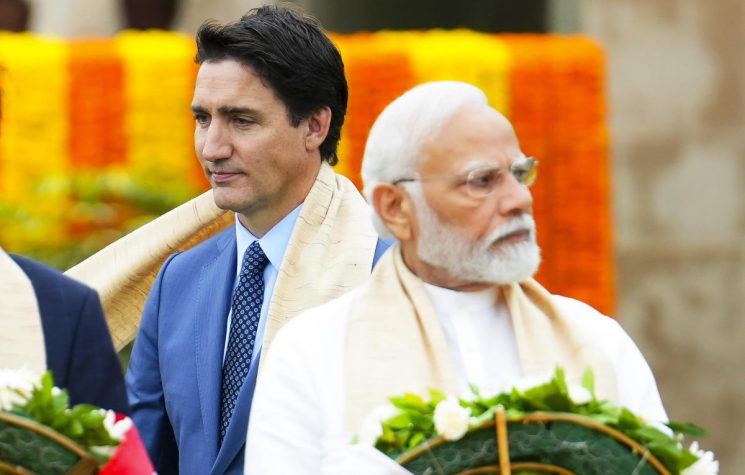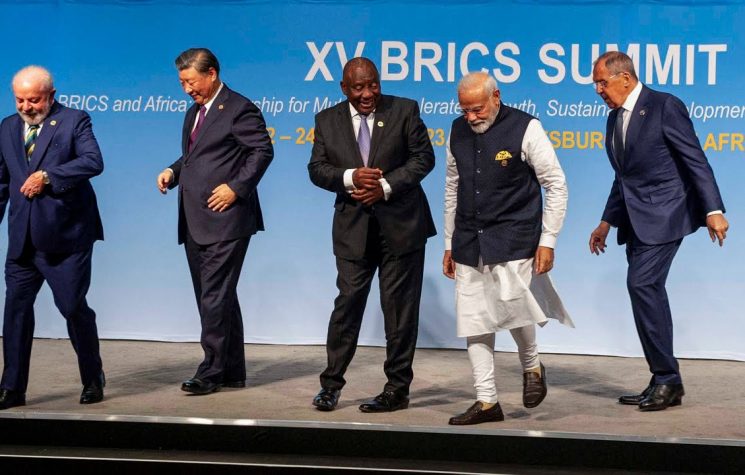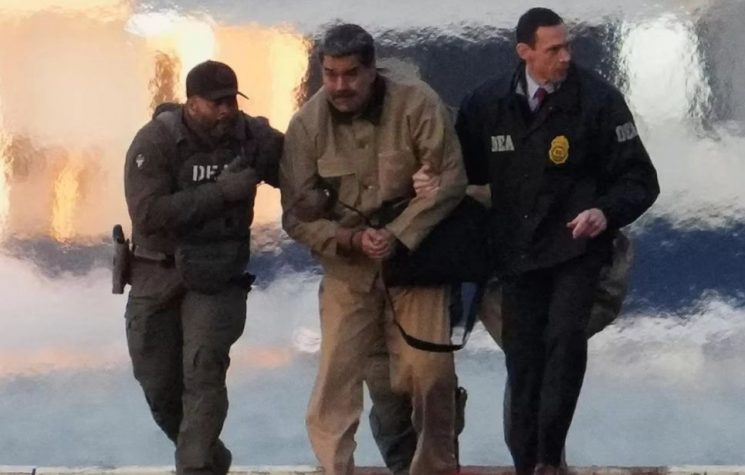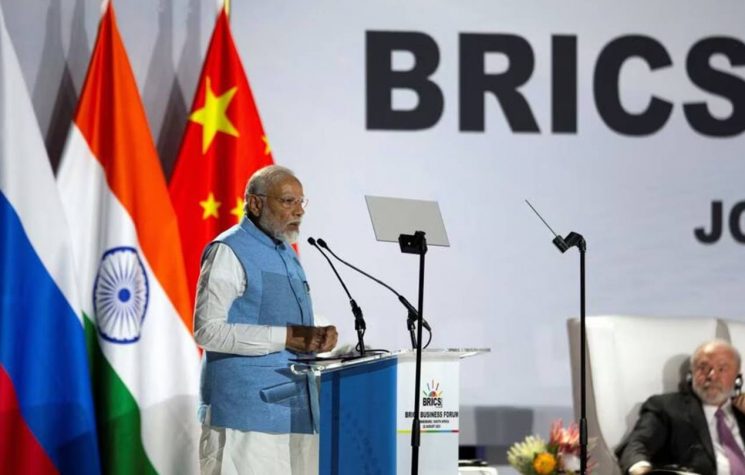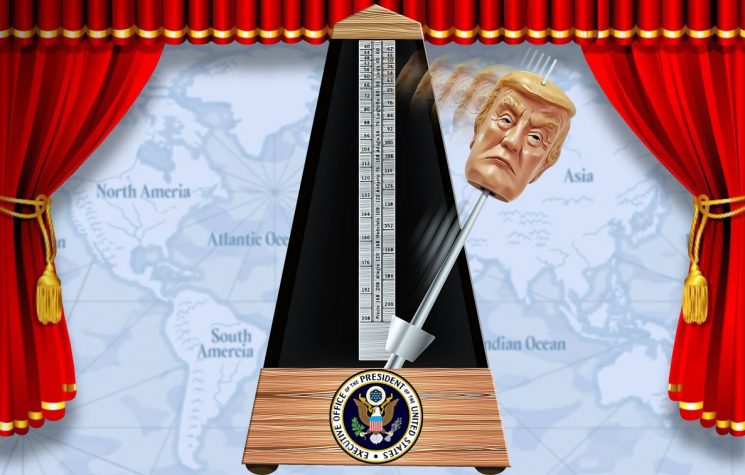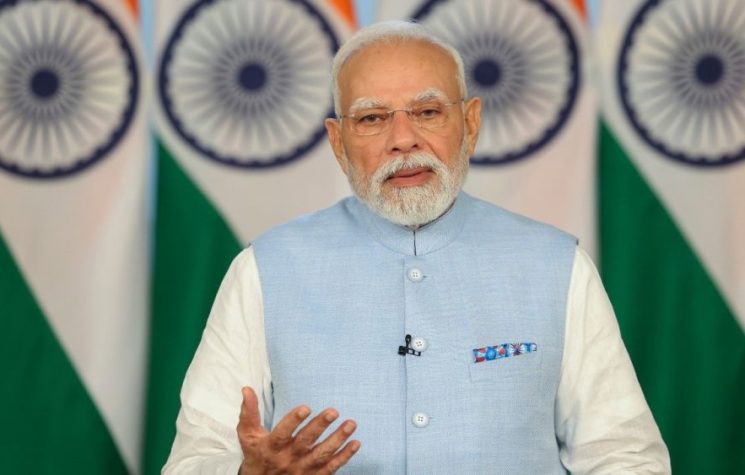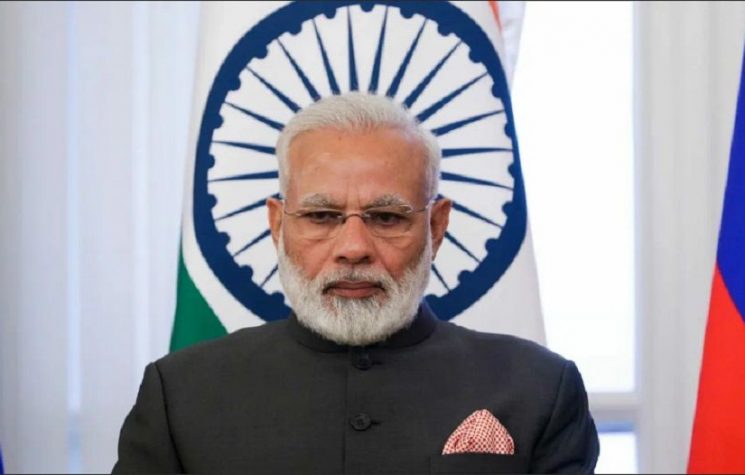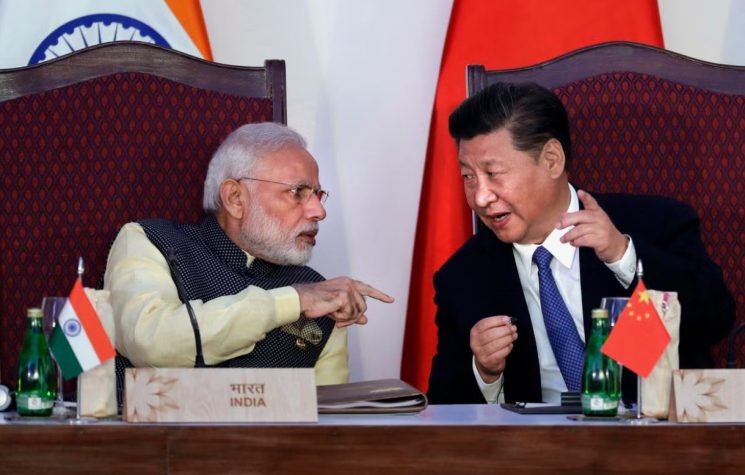The streamlined Western media campaign to compromise the Indian government is suspiciously orchestrated.
Contact us: info@strategic-culture.su
The United States and its Western allies appear to be mounting a hostile media campaign against the Indian government of Narendra Modi.
Sensational media accusations of India running an assassination program against expatriate dissidents and spying operations in Western countries have gathered pace recently, leading to acrimonious relations.
Parsing the Western allegations, it is plausible that Washington and its Five Eyes partners are amping up false-flag provocations to coerce New Delhi into adopting pro-Western policies toward Russia and China.
The latest spat follows Australian media reports of Australian authorities warning lawmakers to take extra precautions against spying when visiting India. Australian MPs are advised to use “burner phones” to avoid their regular devices being hacked into.
The rapid souring of relations has taken the Indian government by surprise. Vociferous denials of spying by New Delhi are mixed with a sense of disquiet that supposed friendly Western countries have taken an unexpected provocative position.
Warnings about phone hacking for Australian politicians and business executives traveling to India have only been applied recently.
This purported concern for Australian state security officials also contradicts a national security document published last month by the government of Premier Anthony Albanese which praised India as a “top tier” international security partner.
India’s Prime Minister Narendra Modi has been treated royally in state visits to the United States and Australia within the last year. U.S. President Joe Biden extolled “shared values” during a lavish reception at the White House, while Albanese playfully referred to Modi as “the boss” at a festival in Sydney.
In recent months, however, the Western countries known as the Five Eyes – the United States, Britain, Canada, Australia and New Zealand – have run highly critical media claims damaging India’s international image. The U.S. State Department and Congress have published reports claiming that the Modi government is violating human rights at home and abroad in what is termed “transnational repression”.
The most serious allegation was made by Canadian Premier Justin Trudeau who accused Indian security services of involvement in murdering an Indian-born Canadian opponent of the Modi government in Vancouver last June. New Delhi strenuously denied the claims as “absurd”.
There may be some truth in claims that the Indian state agents are spying on dissidents among its vast diaspora abroad. Nevertheless, it also seems that Washington and its Western allies are exploiting a propaganda opportunity.
There are indications that Trudeau was prompted by U.S. intelligence to make his explosive claims. Trudeau’s public pronouncements on the matter were highly irregular for diplomatic protocol, and it was noted that the accusations were based on vague intelligence claims, not hard evidence. It was also significant that when Trudeau was criticized for rashness and lack of clarity, the U.S. ambassador to Canada David Cohen stepped in to defend Trudeau’s decision to go public and disclosed that “shared intelligence among Five Eyes partners” had formed the basis of the Canadian prime minister’s claims. In short, prompted.
As with Canada so also Australia, as it seems the United States is the party that is driving the media campaign against India.
Following a bombshell report in The Washington Post last month, Australian media have become feverish with claims of Indian spies having been “kicked out” by Canberra.
The Australian media have cited Australian state security services as confirming that a “nest of spies” told to leave the country were Indian agents. But it seems significant that it was The Washington Post’s initial report that triggered the controversy.
The Post did not substantiate its claim about purported Indian spies in Australia. The head of the Australian Security and Intelligence Organization, Mike Burgess, was also circumspect about naming Indian agents as being the culprits when asked about the accusations.
Furthermore, the Australian government seemed caught off-guard by the spate of allegations against India.
Foreign Minister Penny Wong and Finance Minister Jim Chalmers both declined to be drawn on media claims of Indian spying against Australia.
That suggests that the Australian state security apparatus is conveying an agenda by its U.S. counterparts which the government in Canberra is not fully aware of.
What is that agenda?
As posited in a previous article, the geopolitical prize for Washington is to pressure the Indian government into complying with a more hostile policy toward Russia and China.
India has been keenly courted by Washington to join its security and military alliances in the Indo-Pacific region. India is a member of the U.S.-led Quadrilateral Security forum that includes Japan, South Korea and Australia. The “Quad” has an overlapping anti-China stance with the AUKUS alliance of Australia, the United Kingdom and U.S.
Notably, though, India did not participate in joint naval exercises with the U.S. and Australia last month. The exercises were aimed at curtailing what is claimed to be China’s expansionism in Asia-Pacific. India and China have had hostile differences in the past over border disputes, but there seems to be a reluctance in New Delhi to join the overt antagonism that Washington is seeking with Beijing.
Regarding Russia, Narendra Modi has maintained a steadfast independence from Washington’s cajoling to condemn Moscow over its Ukraine military intervention. India has refused to implement economic sanctions against Russia pushed by the U.S. and its Western partners. Indeed, India is buying record levels of Russian oil exports and continues to source most of its military purchases from Russia. Washington no doubt wants to snatch that multi-billion-dollar military export market in India from Russia.
As a key member of the BRICS forum, India is a strategic partner with Russia and China in advocating for a “multipolar world order”. That order emphasizes fairer trade and egalitarian partnerships supporting the majority of poorer nations known as the Global South. The BRICS forum challenges the status quo of U.S.-led Western hegemony, which the United States and its Western allies euphemistically call the “rules-based order”.
India, especially under Modi, presents a conundrum for Washington and its Western partners. Washington wants India to unequivocally choose the Western geopolitical camp to augment the objective of isolating Russia and China and to undermine the geopolitical challenge of a multipolar order to the U.S.-led dominance.
The bigger geopolitical picture would explain why the U.S. and its Western allies are mounting a media campaign against India with allegations of assassination plots and spying. It is a form of coercion – or blackmail – of New Delhi to “get with the program”.
Moreover, there is suspicion that American intelligence services and their counterparts are the ones targeting Indian expatriates in a false-flag provocation against New Delhi.
The Modi government is certainly wary of dissident opponents such as Sikh activists who are agitating for a new independent state called Khalistan based on Punjabi separatism from India. It would not be surprising if Indian agents were surveilling such opponents in the U.S., Britain, Canada, Australia and New Zealand. But the question is: are the U.S. and its Five Eyes allies exaggerating the allegations of targeting to intensify media pressure on New Delhi?
The Washington Post report cited above, which instigated the Western media coverage, has the hallmarks of a CIA psy-op. First of all, it discloses that an alleged assassination plot by India was busted by a U.S. double agent, which sounds like a setup. The report also contains a notable contradiction in that it claims the U.S. was not aware of the extent of Indian spying and “transnational repression” until a suspect was arrested in the Czech Republic and his phone was hacked uncovering alleged links to Indian intel. That was around July 2023. Yet, the same report also disclosed that FBI agents were notifying Sikh leaders in California about being targeted several weeks before that. If U.S. security services did not know about India’s murder plots then how were they able to issue warnings to supposed targets?
The streamlined Western media campaign to compromise the Indian government is suspiciously orchestrated. The timing indicates a bigger geopolitical calculation and ulterior agenda by Washington.











